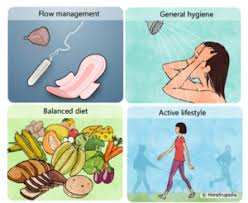
Health Risks from Poor Menstrual Hygiene
By Josephine Gikaru
Health Risks from Poor Menstrual Hygiene
The menstrual process is a natural process experienced by every woman. Despite this being the case there has been a lot of stigma, myths and taboos around the discussion since time immemorial. This taboos often lower the dignity of women and girls as well us bury the need for facilities as well as the sanitary products that are important.
Also read:How to answer the frequently asked interview questions
Top story: schizophrenia-the-white-mans-disease
According to the World Bank at least 500 million girls and women globally lack adequate facilities for menstrual hygiene management (MHM). Inadequate wash (water, sanitation and hygiene) facilities, particularly in public places, such as in schools, work places or health centers, can pose a major obstacle for women and girls……a growing body of evidence shows that girls inability to manage menstrual hygiene in schools, results in school absenteeism which in turn, has severe economic costs on their lives and on the country.
Poor menstrual hygiene is associated with various factors while ranking highest is poverty. Lack of this hygiene or getting the poorest of it exposes one to various health risks.
4 Health Risks that result from poor Menstrual Hygiene
Urinary Tract infection (UTI)
Poor menstrual hygiene is one of the most prevalent infections among women and girls of menstrual ages. When bacteria from the contaminated menstrual products invade the urinary tract, they irritate the mucosal region and cause infection. In addition, improper washing of external genitalia, washing genitalia from back to front and washing with water only are a greatly cause UTI during menstruation.
Yeast Infection
The infection is typically characterized by intense itching, soreness, and/or clumpy white discharge. Yeast infections occur when the vagina’s good bacteria are thrown out of balance, allowing the vagina’s natural yeast to flourish. Yeast infections occur even when one is experiencing their menses due to poor menstrual hygiene.
Hepatitis B
Hepatitis B is usually transmitted through bodily fluids, including menstrual discharge. Menstrual hygiene is therefore important and includes washing hands thoroughly with soap and water after and before changing sanitary products.
High Risk of Cervical Cancer
Cervical cancer is the cancer of the cervix or opening of the Uterus which is caused by the Human Papilloma Virus. According to the Aga Khan university Hospital Worldwide, this disease ranks as the fourth most frequently diagnosed cancer and the fourth leading cause of cancer death in women and yet is a preventable disease. Lack of menstrual hygiene is a major factor that contributes to the development of this disease.



